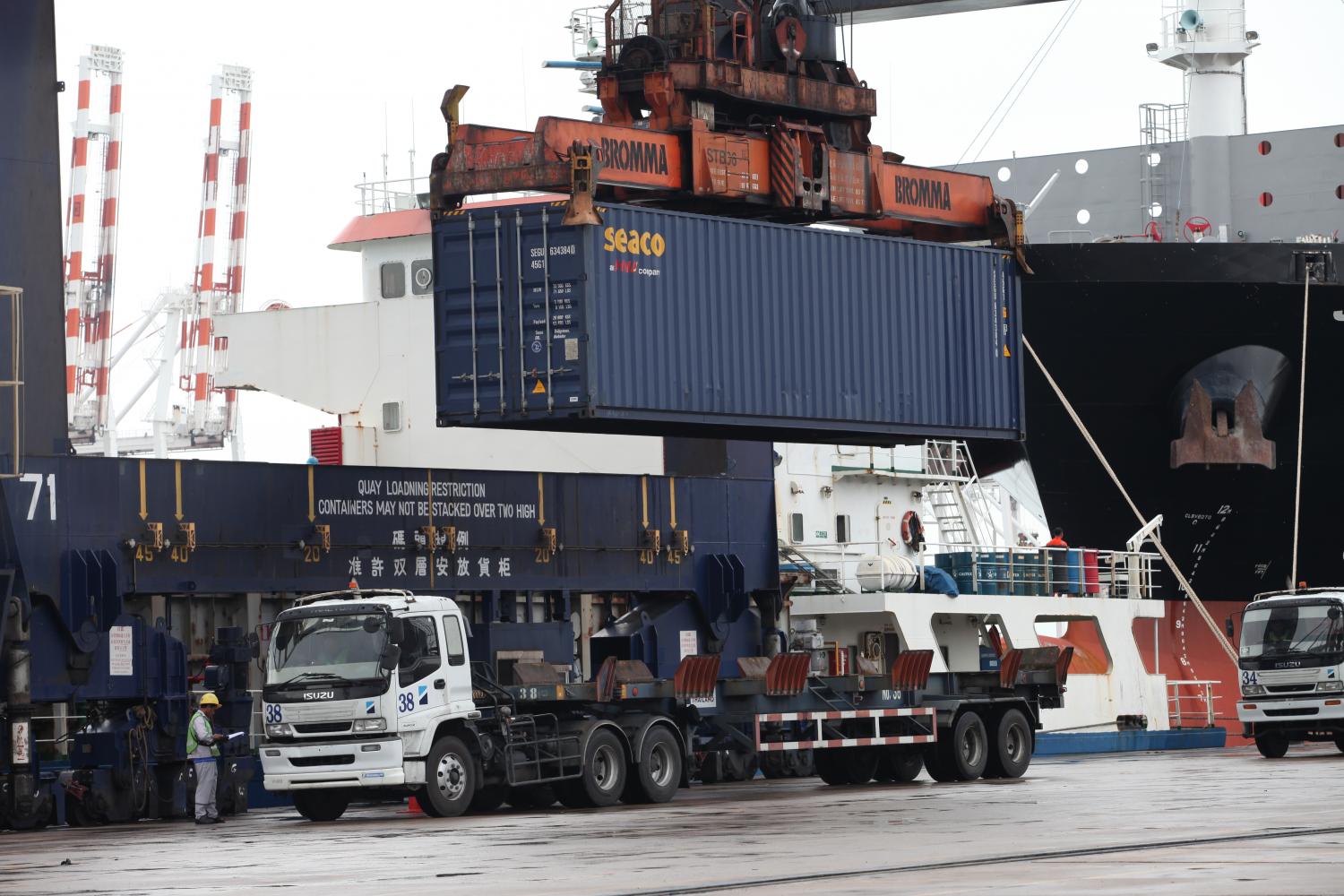
The Commerce Ministry projects the country's export sector to gradually recover in the latter part of the year as inflationary pressures and global supply chain issues align with energy price trends.
The rebound of the service and tourism sectors should also boost demand from trading partners, the ministry said.
However, global economic uncertainty and an inflationary environment will inevitably affect Thai exports in the first half of the year, according to a department chief.
"Thai outbound shipments are expected to contract in the first and second quarters, as importers still maintain large stockpiles," said Phusit Ratanakul Sereroengrit, director-general of the International Trade Promotion Department.
"We believe exports will bounce back to growth in the second half."
Mr Phusit said the department pledged to accelerate activities that promote continued exports.
Starting in the second quarter, he said there will be more large-scale product exhibitions, while commercial counsellors abroad will begin their activities from the second and third quarters, leading to a positive impact on exports in the future.
The ministry reported yesterday the customs-cleared value of exports dipped for the fifth month in a row in February, falling 4.7% year-on-year to US$22.4 billion (730 billion baht), while imports increased by 1.1% to $23.5 billion, resulting in a trade deficit of $1.11 billion.
For the first two months of 2023, Thai exports fell by 4.6% to $42.6 billion, while imports rose by 3.3% to $48.4 billion, resulting in a trade deficit of $5.76 billion.
Poonpong Naiyanapakorn, director-general of the Trade Policy and Strategy Office, said factors causing a decline in exports last month included a high base in February 2022 and key importing countries facing mounting pressure from the global economic slowdown, hampering demand for products.
In addition, he said high inflation in many countries affected consumer purchasing power, resulting in pressure on Thai exports.
According to the ministry's data, Thai exports of agricultural and agro-industrial products grew 3.6% year-on-year in February to $3.9 billion. Products that expanded included animal and vegetable fats and oils (171% growth), fresh, chilled, frozen and dried fruit (95.0%), fresh, chilled and frozen chicken (61.9%), sugar (21.4%), and cassava products (5.2%).
Industrial product exports declined for a fifth consecutive month in February, falling 6.2% to $17.6 billion.
Products that declined included computers, equipment and parts (-22.9%), oil-related products (-20.6%), and iron and steel products (-12.9%).
For the first two months of 2023, Thai exports of agricultural and agro-industrial products edged up by 0.6% from the same period last year to $7.3 billion, while industrial product shipments fell 5.8% to $33.7 billion.
The ministry maintained its export growth target of 1-2% for the year, compared with a 5.5% increase in 2022.